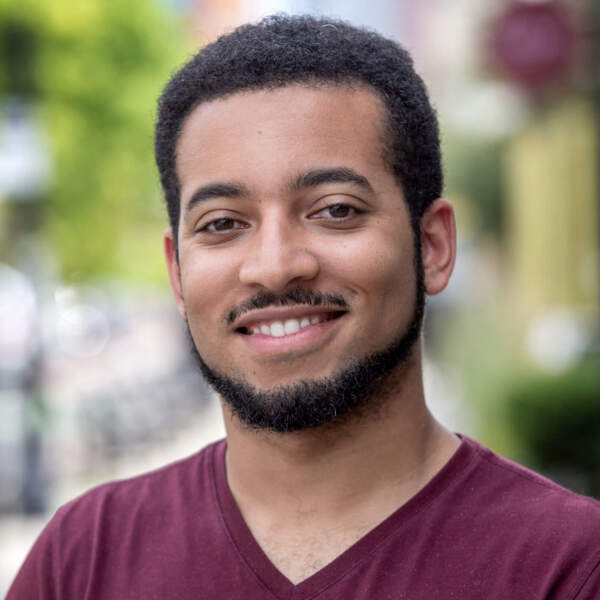Advertisement
Juneteenth Both A Celebration And Reflection Of Road To Ending Racism, Boston NAACP President Says
On this day in 1865, Union soldiers arrived in Texas — the most remote slave state in the country — to deliver the news that the Civil War was over and the enslaved people there were officially free.
That day is now popularly known as Juneteenth, one of the oldest commemorations of emancipation from slavery in the United States.
This year's remembrance takes place amid nationwide protests over racism and police brutality, increasing calls for Juneteenth to become an official national holiday.
Tanisha Sullivan, President of the NAACP in Boston, joined WBUR's Morning Edition to talk about what Juneteenth means to Black Americans, especially during these new reckonings about race in America.
Here are highlights from the interview, lightly edited for clarity.
Interview Highlights
On the importance of Juneteenth
Juneteenth has always marked, for many in the Black community, both celebration and memorial. The legal shackles of slavery may have been released in 1863, but the systemic shackles of slavery remain. And so it is our hope, certainly here in the Commonwealth and in the city of Boston, that in the next 30 to 45 days we may see some meaningful progress to really move us closer to true freedom for all people.
On battling racism through reform
This is not about police officers or law enforcement only. This is about systemic racism. And that shows up in our education system. It shows up in our economic structures here in the Commonwealth, here in the city of Boston. We have some of the deepest, astronomic wealth gaps in the country. Less than one percent of city contracts have been awarded to businesses of color. Look, you don't get those numbers unless you are intentionally trying to keep people from getting contracts or if there is a very deep structural problem or systemic problem with your process.
On Boston's current reckoning with race
Systemic racism really does require us to get to the soul of our city, the soul of our culture, and wrestle with it and be uncomfortable with it. We have scratched the surface when it comes to race and racism. We have not engaged in the uncomfortable conversations that are necessary for us to truly transform our relationship with race and racism. Sometimes we use as a shield our history and we say, oh, our history is, you know, has been so difficult when it comes to race and racism in this city. It's hard for us to overcome. Again, I think that that's a shield and we need to take the shield down.
On George Floyd's death sparking the movement
For the very first time, the world saw from multiple angles in broad daylight in front of witnesses, the brutal murder of a man in such graphic detail that any human who seen the video can not be the same. After seeing that people from every end of the ideological spectrum are seeing or saw the humanity in George Floyd, the humanity in Black people across this country and have become determined to be part of the solution.
On how to keep the movement sustained
My plea is that each of us identifies something that we are deeply passionate about, some area that we're deeply passionate about, and, within that area of focus, doing what we can do to help ensure that there is truly racial equity. So if that is, you know, so if you are someone who is deeply passionate about the environment, for example, systemic racism is deeply rooted in our quest for climate justice and environmental justice. You know, when we think about housing patterns, when we think about transportation equity, find what you're passionate about. Pick up the phone. Use your power and influence to call an elected official or CEO of an organization or chair of the board and let them know how important this issue is. Every little bit counts in this fight. What's most important is that you know, that you realize this is not a special interest. You know, racial justice is not about a special interest. Racial justice is about humanity.
On Juneteenth being recognized as a holiday
Absolutely. Slavery in this country is one of our stains. We should all across this country celebrate the day when enslaved Black people in Galveston, Texas, finally got the message, two-plus years after the Emancipation Proclamation, that slavery had been abolished. We should all celebrate that because it marks a turning point for us. Certainly, still more work to be done. But I am hopeful that our nation will embrace Juneteenth as our collective holiday and will join the Black community in not only celebrating it but also memorializing it in recognition of the work that lies ahead.
This segment aired on June 19, 2020.

